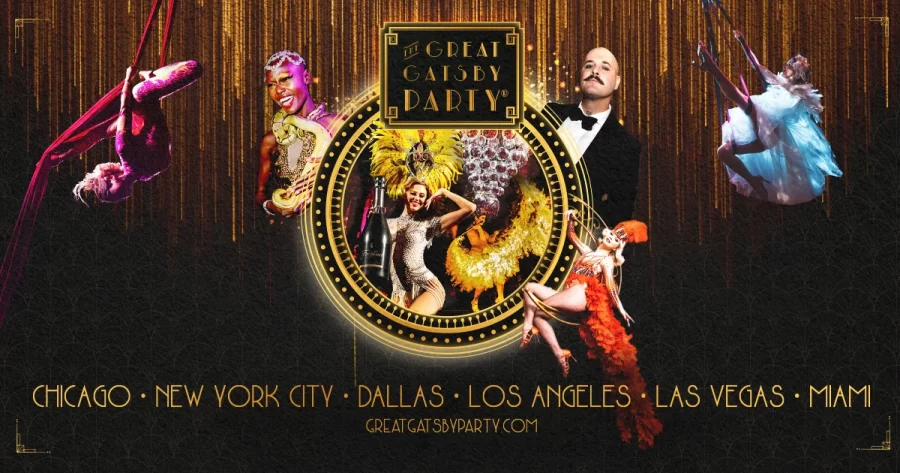Having taken a break from The Great Gatsby for over a year, I was reintroduced to the dazzling novel, or rather the lasting effect of it, by an unsuspecting Instagram ad. While scrolling one summer night through the stories of friends and people I barely know, a scene of vigorous excitement graced my screen. The roaring twenties are coming to a city near you! Champagne pyramids, acrobats, and a sea of gold were promised at a Great Gatsby themed party in Dallas’s Union Station, and, by the looks of it, I thought it couldn’t possibly be real. I instantly went to Google to investigate, and lo and behold, it was. For one night only, The Great Gatsby was coming to Dallas and for $125 a ticket, just about anyone could party like it’s 1922.
As I returned to instagram and the ad disappeared into the dark abyss of the Metaverse, the only thought I was left with was why? Why, over 100 years after the events of The Great Gatsby were to have taken place, do we still care? And why have we not learned from it? Yes, Gatsby’s parties were glamorous and a glamorous night does seem fun, but the party itself seems, to me, to be the perfect example of the consumerism and overindulgence the novel criticizes. The party goers, a mirror of those that drank from Gatsby’s bottle, yet didn’t show up for his funeral. We might care about The Great Gatsby and the grand scenes it offers, but have we learned from its cautionary tale?
Over the course of this semester, this blog will explore what continues to make The Great Gatsby relevant to our time, what we have learned from it and what we have not, and what connects us to it so much that $125 seems the perfect price to be transported between its pages.
“The Great Gatsby Party.” Ticketmaster, https://www.ticketmaster.com/The-Great-Gatsby-Party-tickets/artist/2411193?page=1. 4 September 2023.

